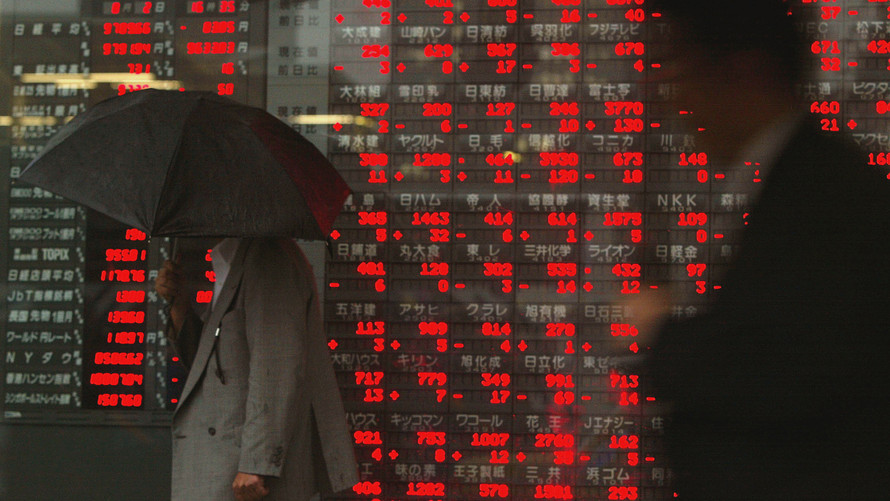Others will have suffered, too. The declines in stocks imply a smaller pension pot for those about to retire.
其他人也將遭遇不幸。股票的衰退暗示著給即將退休者準備的養老金存罐變得更小。
Wherever investment income is needed to meet current expenses, belts must be tightened.
若需要用投資收益滿足日常費用,就必須勒緊褲腰帶。
Yet those who are still building up their wealth will benefit from lower asset prices. Take housing, for instance.
但那些仍在累積財富的人將從更低的資產價格中獲益。以住房為例。
A fall in house prices hurts those who are "long" property, those who own more housing than they will personally need over their lifetime.
房價下跌會對那些擁有多套住房的“長”房屋所有者造成傷害。
Call such people "landlords". But it also helps those people—call them "tenants"—who hope either to buy a property or to trade up to a bigger one in future.
這些人被稱為“房東”。但房價下跌也幫助那些—稱他們為“房客”—想要買房或是想要換一個更大房子的人。
Falling house prices make it easier for them to reach their goal.
房價下跌讓他們的目標更容易實現。
A similar logic applies to stockmarkets. Just as a home is a stream of future housing services, a stock is a stream of future dividends.
類似邏輯也適用于股票市場。就像房子是一串未來住房服務一樣,股票也是一串未來股息。
Lower stock prices may be bad for stockmarket "landlords", but they are good for stockmarket "tenants".
更低的股票價格或許對股市“房東”不是件好事,但是對股市“房客”來說卻是件好事。
Warren Buffett has written that those who plan to be net buyers of stocks in the future should rejoice when stocks fall.
沃倫·巴菲特曾寫到,在股票下跌的時候,那些計劃成為未來股票凈購買者的人應該慶祝。

An investor of this kind who cheers rising stock prices is like "a commuter who rejoices after the price of gas increases, simply because his tank contains a day's supply".
慶祝股價上漲的這類投資者就像是“一位在油氣價格上漲后慶祝的通勤者一樣,因為他的氣箱里裝滿了一天的供應量”。
Fears of recession are not the only reason for falling stock prices.
對衰退的恐懼不是股價下跌的唯一原因。
Part of the recent decline is down to prospects, such as Brexit or growing protectionism, that will do permanent damage to the global economy,
近期部分下跌是由于對前景的瞻望,比如脫歐或不斷增長的保護主義,這將對全球經濟、
and thus to company profits and stockmarket returns. Yet even in this regard there is something to be said for a correction in asset prices.
公司利潤以及股市收益造成永久的損傷。但即便在這點上,對資產價格進行修正也是有好處的。
When excessive optimism is built into asset prices, wasteful investment often follows.
當對資產價格過于樂觀時,緊隨其后的通常是投資浪費。
Think of the homes built in out-of-the-way places in America, Spain and Ireland to satisfy speculative demand during the global housing boom of the noughties.
想想在21世紀的頭10年中,全球房屋市場的繁榮,美國、西班牙和愛爾蘭為了滿足投機需求而在偏遠地區建造的那些房屋。
Investors, like those who use ecstasy or alcohol, face a choice. They can feel good now or later.
投資者,比如那些服用搖頭丸或酒精的人,面臨一項選擇。他們可以現在或晚些時候high起來。
Genuinely long-term investors will always choose later.
長期投資者總會選擇后者。
They want to buy stocks as cheaply as possible and when they get a higher premium for owning risky assets.
他們想要購買盡可能便宜的股票,并且是在他們為擁有風險資產而獲得更高度保險費之時。
Recessions are an inevitable part of the risks investors face. As with hangovers, they feel interminable. But eventually they clear.
衰退是投資者所面臨的風險中不可避免的一部分。和宿醉一樣,感覺沒完沒了,但終將會變得清晰。
譯文由可可原創,僅供學習交流使用,未經許可請勿轉載。












